Lorem ipsum dolor sit amet, consectetur adipiscing elit. Ut elit tellus, luctus nec ullamcorper mattis, pulvinar dapibus leo.
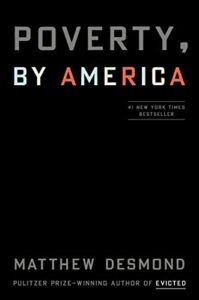 Poverty, By America by Matthew Desmond
Poverty, By America by Matthew Desmond
The United States, the richest country on earth, has more poverty than any other advanced democracy. Why? Why does this land of plenty allow one in every eight of its children to go without basic necessities, permit scores of its citizens to live and die on the streets, and authorize its corporations to pay poverty wages?
In this landmark book, acclaimed sociologist Matthew Desmond draws on history, research, and original reporting to show how affluent Americans knowingly and unknowingly keep poor people poor.
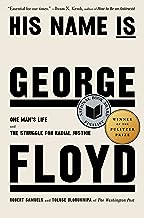
His Name Is George Floyd: One Man’s Life and the Struggle for Racial Justice by Robert Samuels, Toluse Olorunnipa
A landmark biography by two prizewinning Washington Post reporters that reveals how systemic racism shaped George Floyd’s life and legacy—from his family’s roots in the tobacco fields of North Carolina, to ongoing inequality in housing, education, health care, criminal justice, and policing—telling the story of how one man’s tragic experience brought about a global movement for change.
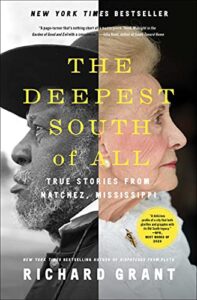 The Deepest South of All: True Stories from Natchez, Mississippi by Richard Grant
The Deepest South of All: True Stories from Natchez, Mississippi by Richard Grant
Natchez, Mississippi, once had more millionaires per capita than anywhere else in America, and its wealth was built on slavery and cotton. Today it has the greatest concentration of antebellum mansions in the South, and a culture full of unexpected contradictions. Prominent white families dress up in hoopskirts and Confederate uniforms for ritual celebrations of the Old South, yet Natchez is also progressive enough to elect a gay black man for mayor with 91% of the vote.
Much as John Berendt did for Savannah in Midnight in the Garden of Good and Evil and the hit podcast S-Town did for Woodstock, Alabama, so Richard Grant does for Natchez in The Deepest South of All. With humor and insight, he depicts a strange, eccentric town with an unforgettable cast of characters.
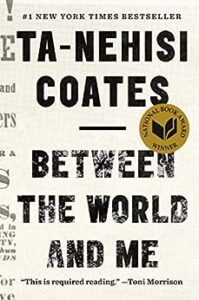 Between the World and Me by Ta-Nehisi Coates
Between the World and Me by Ta-Nehisi Coates
In a profound work that pivots from the biggest questions about American history and ideals to the most intimate concerns of a father for his son, Ta-Nehisi Coates offers a powerful new framework for understanding our nation’s history and current crisis. Americans have built an empire on the idea of “race,” a falsehood that damages us all but falls most heavily on the bodies of black women and men—bodies exploited through slavery and segregation, and, today, threatened, locked up, and murdered out of all proportion. What is it like to inhabit a black body and find a way to live within it? And how can we all honestly reckon with this fraught history and free ourselves from its burden?
Between the World and Me is Ta-Nehisi Coates’s attempt to answer these questions in a letter to his adolescent son.
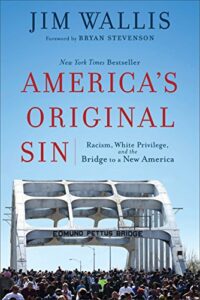 America’s Original Sin: Racism, White Privilege, and the Bridge to a New America by Jim Wallis
America’s Original Sin: Racism, White Privilege, and the Bridge to a New America by Jim Wallis
“It’s time we right this unacceptable wrong,” says bestselling author and leading Christian activist Jim Wallis. Fifty years ago, Wallis was driven away from his faith by a white church that considered dealing with racism to be taboo. His participation in the civil rights movement brought him back when he discovered a faith that commands racial justice. Yet as recent tragedies confirm, we continue to suffer from the legacy of racism. The old patterns of white privilege are colliding with the changing demographics of a diverse nation. The church has been slow to respond, and Sunday morning is still the most segregated hour of the week.
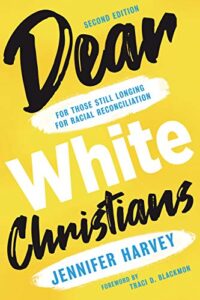 Dear White Christians: For Those Still Longing for Racial Reconciliation by Jennifer Harvey
Dear White Christians: For Those Still Longing for Racial Reconciliation by Jennifer Harvey
“If reconciliation is the takeaway point for the civil rights story we usually tell, then the takeaway point for the more complex, more truthful civil rights story contained in Dear White Christians is reparations.” — from the preface to the second edition
With the troubling and painful events of the last several years—from the killing of numerous unarmed Black men and women at the hands of police to the rallying of white supremacists in Charlottesville—it is clearer than ever that the reconciliation paradigm, long favored by white Christians, has failed to heal the deep racial wounds in the church and American society. In this provocative book, originally published in 2014, Jennifer Harvey argues for a radical shift away from the well-meaning but feeble longing for reconciliation toward a robustly biblical call for reparations.
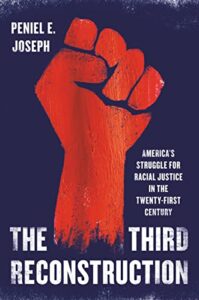 The Third Reconstruction: America’s Struggle for Racial Justice in the Twenty-First Century by Peniel E. Joseph
The Third Reconstruction: America’s Struggle for Racial Justice in the Twenty-First Century by Peniel E. Joseph
In The Third Reconstruction, distinguished historian Peniel E. Joseph offers a powerful and personal new interpretation of recent history. The racial reckoning that unfolded in 2020, he argues, marked the climax of a Third Reconstruction: a new struggle for citizenship and dignity for Black Americans, just as momentous as the movements that arose after the Civil War and during the civil rights era. Joseph draws revealing connections and insights across centuries as he traces this Third Reconstruction from the election of Barack Obama to the rise of Black Lives Matter to the failed assault on the Capitol.
America’s first and second Reconstructions fell tragically short of their grand aims. Our Third Reconstruction offers a new chance to achieve Black dignity and citizenship at last—an opportunity to choose hope over fear.
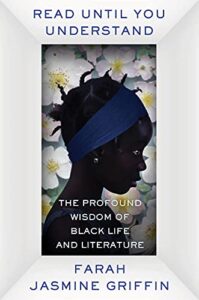 Read Until You Understand: The Profound Wisdom of Black Life and Literature by Farah Jasmine Griffin
Read Until You Understand: The Profound Wisdom of Black Life and Literature by Farah Jasmine Griffin
A brilliant scholar imparts the lessons bequeathed by the Black community and its remarkable artists and thinkers.
Farah Jasmine Griffin has taken to her heart the phrase “read until you understand,” a line her father, who died when she was nine, wrote in a note to her. She has made it central to this book about love of the majestic power of words and love of the magnificence of Black life.
Griffin has spent years rooted in the culture of Black genius and the legacy of books that her father left her. A beloved professor, she has devoted herself to passing these works and their wisdom on to generations of students.
Here, she shares a lifetime of discoveries: the ideas that inspired the stunning oratory of Frederick Douglass and Malcolm X, the soulful music of Marvin Gaye and Stevie Wonder, the daring literature of Phillis Wheatley and Toni Morrison, the inventive artistry of Romare Bearden, and many more. Exploring these works through such themes as justice, rage, self-determination, beauty, joy, and mercy allows her to move from her aunt’s love of yellow roses to Gil Scott-Heron’s “Winter in America.”
Griffin entwines memoir, history, and art while she keeps her finger on the pulse of the present, asking us to grapple with the continuing struggle for Black freedom and the ongoing project that is American democracy. She challenges us to reckon with our commitment to all the nation’s inhabitants and our responsibilities to all humanity.
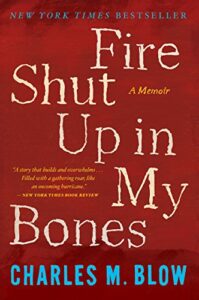 Fire Shut Up in My Bones by Charles M. Blow
Fire Shut Up in My Bones by Charles M. Blow
A gorgeous, moving memoir of how one of America’s most innovative and respected journalists found his voice by coming to terms with a painful past
New York Times columnist Charles M. Blow mines the compelling poetry of the out-of-time African-American Louisiana town where he grew up — a place where slavery’s legacy felt astonishingly close, reverberating in the elders’ stories and in the near-constant wash of violence.
Blow’s attachment to his mother — a fiercely driven woman with five sons, brass knuckles in her glove box, a job plucking poultry at a nearby factory, a soon-to-be-ex husband, and a love of newspapers and learning — cannot protect him from secret abuse at the hands of an older cousin. It’s damage that triggers years of anger and searing self-questioning.
Finally, Blow escapes to a nearby state university, where he joins a black fraternity after a passage of brutal hazing, and then enters a world of racial and sexual privilege that feels like everything he’s ever needed and wanted, until he’s called upon, himself, to become the one perpetuating the shocking abuse.
A powerfully redemptive memoir that both fits the tradition of African-American storytelling from the South, and gives it an indelible new slant.
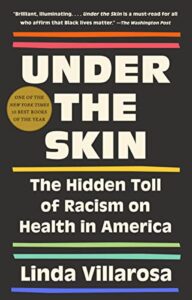 Under the Skin: The Hidden Toll of Racism on American Lives and on the Health of Our Nation
Under the Skin: The Hidden Toll of Racism on American Lives and on the Health of Our Nation
by Linda Villarosa
In 2018, Linda Villarosa’s New York Times Magazine article on maternal and infant mortality among black mothers and babies in America caused an awakening. Hundreds of studies had previously established a link between racial discrimination and the health of Black Americans, with little progress toward solutions. But Villarosa’s article exposing that a Black woman with a college education is as likely to die or nearly die in childbirth as a white woman with an eighth grade education made racial disparities in health care impossible to ignore.
Now, in Under the Skin, Linda Villarosa lays bare the forces in the American health-care system and in American society that cause Black people to “live sicker and die quicker” compared to their white counterparts.
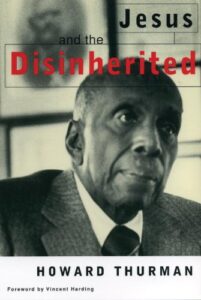 Jesus and the Disinherited by Howard Thurman
Jesus and the Disinherited by Howard Thurman
In this classic theological treatise, the acclaimed theologian and religious leader Howard Thurman (1900-1981) demonstrates how the gospel may be read as a manual of resistance for the poor and disenfranchised. Jesus is a partner in the pain of the oppressed and the example of His life offers a solution to ending the descent into moral nihilism. Hatred does not empower–it decays. Only through self-love and love of one another can God’s justice prevail.
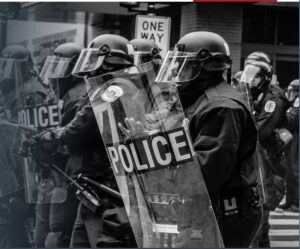 Police Brutality.
Police Brutality.
An informative web site with information about police killings, racial profiling and similar topics.
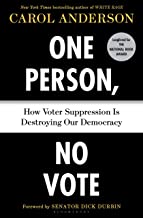 One Person No Vote:How Voter Suppression is Destroying Our Democracy by Carol Anderson
One Person No Vote:How Voter Suppression is Destroying Our Democracy by Carol Anderson
A new history of voter suppression by the author of White Rage
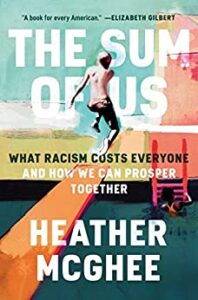 The Sum of Us: What Racism Costs Everyone and How We Can Prosper Together by Heather McGhee
The Sum of Us: What Racism Costs Everyone and How We Can Prosper Together by Heather McGhee
One of today’s most insightful and influential thinkers offers a powerful exploration of inequality and the lesson that generations of Americans have failed to learn: Racism has a cost for everyone—not just for people of color.
Heather McGhee’s specialty is the American economy—and the mystery of why it so often fails the American public. From the financial crisis of 2008 to rising student debt to collapsing public infrastructure, she found a root problem: racism in our politics and policymaking. But not just in the most obvious indignities for people of color. Racism has costs for white people, too. It is the common denominator of our most vexing public problems, the core dysfunction of our democracy and constitutive of the spiritual and moral crises that grip us all. But how did this happen? And is there a way out?
McGhee embarks on a deeply personal journey across the country from Maine to Mississippi to California, tallying what we lose when we buy into the zero-sum paradigm—the idea that progress for some of us must come at the expense of others. Along the way, she meets white people who confide in her about losing their homes, their dreams, and their shot at better jobs to the toxic mix of American racism and greed. This is the story of how public goods in this country—from parks and pools to functioning schools—have become private luxuries; of how unions collapsed, wages stagnated, and inequality increased; and of how this country, unique among the world’s advanced economies, has thwarted universal healthcare.
But in unlikely places of worship and work, McGhee finds proof of what she calls the Solidarity Dividend: the benefits we gain when people come together across race to accomplish what we simply can’t do on our own. The Sum of Us is not only a brilliant analysis of how we arrived here but also a heartfelt message, delivered with startling empathy, from a black woman to a multiracial America. It leaves us with a new vision for a future in which we finally realize that life can be more than a zero-sum game.
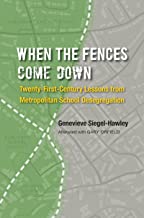 When the Fences Come Down: Twenty-First-Century Lessons from Metropolitan School Desegregation
When the Fences Come Down: Twenty-First-Century Lessons from Metropolitan School Desegregation
Genevieve Siegel-Hawley
How we provide equal educational opportunity to an increasingly diverse, highly urbanized student population is one of the central concerns facing our nation. As Genevieve Siegel-Hawley argues in this thought-provoking book, within our metropolitan areas we are currently allowing a labyrinthine system of school-district boundaries to divide students–and opportunities–along racial and economic lines.
 Health Equity in Opioid Dependency Treatment: Differences in Opioid Treatment for Black and Latino Patients
Health Equity in Opioid Dependency Treatment: Differences in Opioid Treatment for Black and Latino Patients
Bicycle Health
This website presents information about research done to explore the ways that opioid dependency treatment differ between race and ethnicity. https://www.bicyclehealth.com/blog/health-equity-in-opioid-dependency-treatment-differences-in-opioid-treatment-for-black-and-latino-patients
